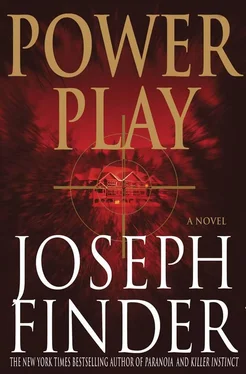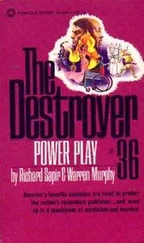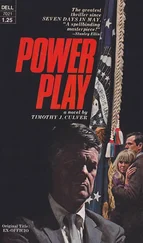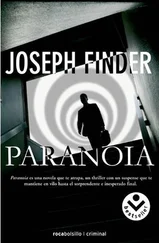Then the voices stopped. Retreating footsteps, then a screen door opening and closing. One of them-was it Wayne?-had gone outside to search for Buck.
I slid across the floor, paused to listen again.
No one out there now.
I pushed the kitchen service door from the bottom, just a few inches.
Then a few inches more.
The Ruger tucked into my belt: I needed both hands free.
Then, rising slowly, I sidled through the doorway and eased it closed behind me.
Looking left, then right, I surveyed the room, satisfied that no one was in sight.
Through the cavernous shadowed room slowly, cautiously, footsteps soft. I was afraid I might trip over something. But as my eyes adjusted, I was able to zigzag without tipping over a vase or a wine-glass.
Past the staircase landing, then into the hallway that led to the side entrance, the bathroom, the manager's office. Three identical wooden doors off the hall: dark-stained, five horizontal raised panels. All with black iron knobs and locksets that opened with the same skeleton key, Paul had said. First was the bathroom, the next two unmarked, the fourth had a small brass plaque that said MANAGER.
Just as Paul had promised, a legal bookcase stood outside his office door. Squat, dark-stained quarter-sawn oak, glass-fronted. The sort of gloomy semiantique furniture you might find in the courthouse office of a public defender in a small town in upstate New York.
On top of the bookcase, a brown ceramic lamp. I lifted it, spotted the skeleton key.
The manager's office door was locked, but the old key fit snugly in the lock. It turned with a satisfying click.
I pulled the revolver from my belt, held it in my right hand as I turned the knob and opened the door with my left.
The room was small, windowless, absolutely dark. It smelled of old wood and damp paper. I pocketed the skeleton key, then shut the door behind me.
I paused for a moment, considering whether to lock the door or not. Was it more important to keep the bad guys out or be able to make a quick escape? Impossible to know.
I decided not to lock it.
Then I pulled out Buck's tactical flashlight, pressed the tailcap switch to pulse the beam on for a second. In one freeze-frame I could make out a small, rolltop desk, stored its location in my memory. On top of it, an Apple iMac computer, the one-piece model with the flat screen and spherical base that was popular a few years ago.
I had an Apple computer at home. When you pressed the power switch, it chimed like the opening chord of a Beethoven symphony. Unless the volume was turned down. But you didn't know until it was too late.
Even turning it on was a risk, but wasn't everything just then? I found the power button by feel on the back side of the base and pressed it.
In a few seconds it chimed. Loud.
I sat in an old rolling office chair and watched the screen light up and come to life, listening for footfalls in the hall.
And suddenly I changed my mind, got up, and locked the door. At least if someone came by to investigate, I'd hear the doorknob rattle and have just enough time to take aim.
The screen flashed the Apple logo. Its hard drive crunched and crunched, and I waited. It seemed to take forever. If Paul had installed a password to keep out unauthorized users, he hadn't bothered to mention it.
But no, a swirly blue pattern came right up. A row of icons on the right: Internet Explorer and the Safari browser. I double-clicked Safari and waited for it to load.
And waited.
Jesus, I thought, this is slow.
For God's sake, hurry. I found myself talking to the computer, all the while listening for footsteps, knowing that at any minute I might be discovered.
But all I got was a big white box, a blank screen.
Then a few lines of text, not what I wanted to see:
YOU ARE NOT CONNECTED TO THE INTERNET.
Safari can't open the page http://www.google.com/
because your computer isn't connected to the Internet.
I quit Safari and reloaded it, and got the same error message. I clicked on the "Network Diagnostics" button and got a pane with a row of red dots and more dismaying news:
Built-in Ethernet-failed
Internet-failed
Either the modem was down or the satellite Internet connection wasn't working.
Shit.
Switching on the flashlight, I traced the modem cable to a closet. The door was unlocked, and the modem was right inside, bracketed to the wall.
Its power light was on, but the receiver light was off. That told me it wasn't getting any satellite signal. So I did what we've all learned to do in this age of balky technology equipment: I shut the modem down, waited a few seconds, then powered it back up.
No change. Nothing different.
The problem wasn't with the modem or the computer. Someone had cut off Internet access. There was no way to e-mail out.
Or wire money out, either.
That was the puzzling thing.
It could hardly be a coincidence that the Internet connection was down. Russell's men must have done something. After all, once they'd grabbed the sat phone, the only way for their hostages to transmit a distress message was via the Internet.
Yet without it, there'd be no half-billion-dollar ransom. So barring some accident during the takeover, they must have dismantled it. Not in here, though, or I'd have seen it. Somewhere outside.
I had to get out there and try to restore the link.
The summer after I'd got out of Glenview and before I joined the National Guard, I'd gotten a job as a cable TV installer. Before the summer was over I quit, but not before I'd acquired a few useless skills, like how to splice coaxial cable.
Maybe not so useless.
But if the line had been cut, it would take me a long time to repair it without the right tools-a crimper and some connectors and other parts that I doubted Peter the handyman kept around. When the satellite went down, they probably called the satellite company. Chances were, Peter didn't do those repairs himself. That was a fairly specialized skill.
I waited at the door, didn't hear anyone walking by. Holding the Ruger in my right hand, the key in my left, I unlocked the door, pushed it open a few inches, looked out.
No one in the hall that I could see.
As I crept along the dark hall, I glanced out a window. No one out there. Maybe Wayne was still trudging through the forest, looking for Buck. Maybe he'd gotten caught in the underbrush.
I kept looking, trying to locate the satellite dish. I vaguely remembered seeing one somewhere behind the lodge, mounted on top of an outbuilding. Which made sense: The dish didn't fit in with the rustic dйcor.
Sure enough, it was where I remembered: on top of a shed about two hundred feet from the lodge. The cable that ran from the lodge to the dish would be buried, of course. If it had been cut, there were only two places it could have been done: at the shed, or on the exterior of the lodge.
Gently nudging the screen door open, I stepped out onto the soft earth, then pushed the door closed behind me so it wouldn't slam. The pneumatic closer hissed in annoyance. Pine needles crunched underfoot. I inhaled the delicious cool air. It smelled of salt water and pine. It was a relief.
For a moment, I allowed myself to enjoy the illusion of freedom.
But of course I wasn't free. Not as long as Ali and all the others were trapped inside.
Just keep going, I told myself. Don't overthink.
Self-doubt could be crippling.
I walked slowly along the log siding, looking for a cable stapled to the concrete foundation. The wall outside Paul's office was the most logical place to find it. I couldn't risk switching on the flashlight; fortunately, the moon was bright.
Читать дальше












